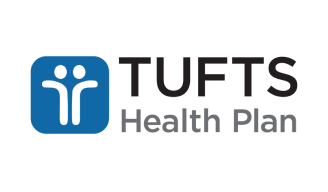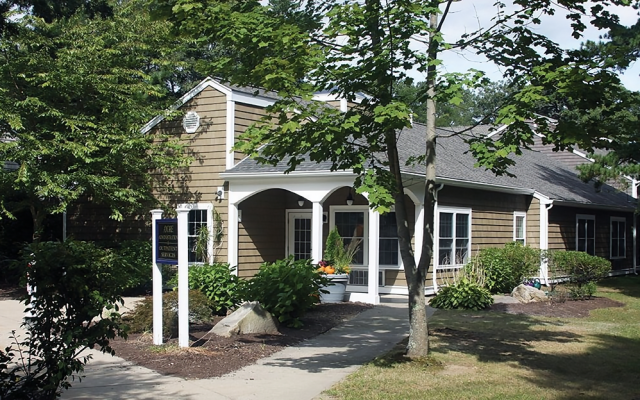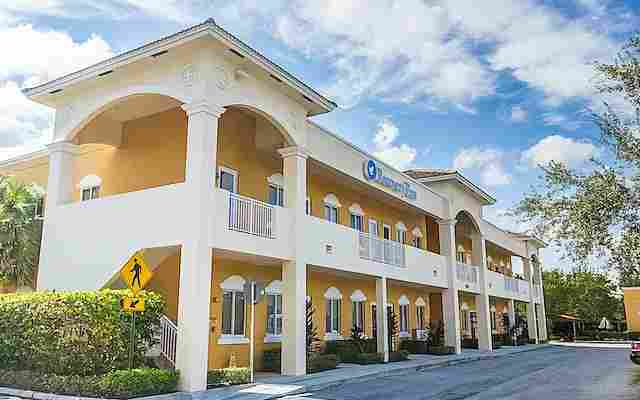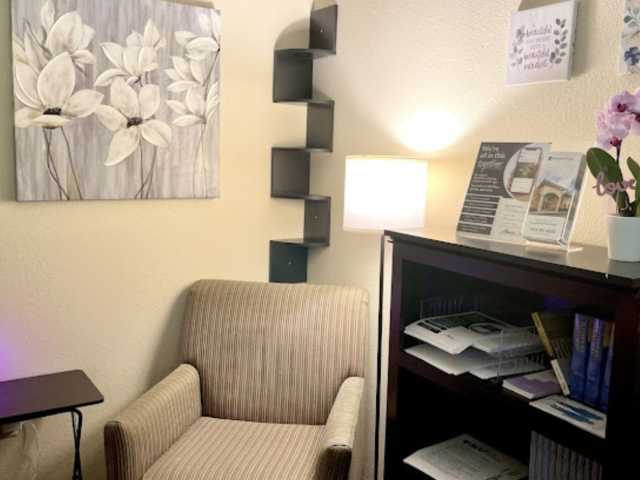
Riverview, Florida, United States
River Oaks Treatment Outpatient Center
Verified
Verified
This provider’s information has been quality-checked by Recovery.com’s Research Team for accuracy and completeness, including center verification through appropriate third-party organizations.
Joint Commission Accredited
The Joint Commission accreditation is a voluntary, objective process that evaluates and accredits healthcare organizations (like treatment centers) based on performance standards designed to improve quality and safety for patients. To be accredited means the treatment center has been found to meet the Commission's standards for quality and safety in patient care.
Provider's Policy
River Oaks accepts numerous insurance plans. Learn more about how we can help or start admissions online by checking your insurance coverage for addiction treatment services.
Estimated Cash Pay Rate
The cost listed here (Call For Rates) is an estimate of the cash pay price. Center pricing can vary based on program and length of stay. Contact the center for more information. Recovery.com strives for price transparency so you can make an informed decision.
Highlights from the Center
Highlights
These highlights are provided by and paid for by the center.
Therapeutic Location
Customized Treatment Plans
Perfect for Professionals
Medically Assisted Detox
About River Oaks Treatment Outpatient Center
River Oaks Outpatient Center provides outpatient treatment for addiction and co-occurring mental health conditions using a continuum of care and personalized treatment plans. Their levels of outpatient care include day treatment, intensive outpatient, and telehealth services. Clients can reside at home or in their adjacent sober living facility during outpatient care.
Multiple Levels of Outpatient Care
Clients can attend specific levels of care or seamlessly move across the continuum to follow a progressive rehab journey. River Oaks Outpatient Center’s most intensive level of outpatient care, day treatment, runs Monday-Friday from 9-4:30pm. Clients participate in evidence-based therapies like cognitive behavioral therapy (CBT), trauma therapy, dialectical behavioral therapy (DBT), motivational interviewing techniques, art therapy, and the 12-Step program. In River Oaks Outpatient Center’s intensive outpatient program (IOP), clients attend treatment from 9am-12pm, 3-5 days weekly. Virtual IOP runs from 5-8pm, Monday-Friday. General outpatient care offers several hours of weekly care.
Individualized Treatment Services
Each client at River Oaks Outpatient Center receives a recovery plan tailored to meet their unique needs. Their team, including a physician, nurse, primary therapist, and case manager, assess clients’ histories with addiction, mental health, and physical health. The team meets weekly to discuss progress and suggest changes. Treatment plans include 1:1, group, and family therapy as desired. Medication-assisted treatment (MAT) is also available as needed. River Oaks Outpatient Center also provides psychoeducation and didactic groups to teach clients and their loved ones more about addiction and recovery. Twelve Step groups meet onsite and remain available during and after treatment.
Transitional Sober Living and Aftercare
River Oaks Outpatient Center offers independent sober living. Their sober living home offers shared living spaces and kitchens where clients eat and prepare meals together. Transportation is provided for treatment and group outings. River Oaks Outpatient Center offers ongoing support through their alumni network, alumni app, and support meetings covering a wide array of topics, like grief and loss, LGBTQ+ support, and relapse prevention.
Read More
Insurance Accepted
Provider's Policy:River Oaks accepts numerous insurance plans. Learn more about how we can help or start admissions online by checking your insurance coverage for addiction treatment services.
More American Addiction Centers Locations
Robust Day Treatment Program
River Oaks Outpatient Center’s day treatment program, or partial hospitalization, provides around 30 hours of weekly care. Clients typically attend treatment 5 days a week, from 9am-4:30pm. As needed, clients receive MAT for opioid or alcohol use disorder. A wide range of evidence-based therapies, peer support groups, and psychoeducation topics help clients heal and approach recovery with confidence. Case managers and therapists help develop a unique plan for each client.
Flexible Intensive Outpatient Program
River Oaks Outpatient Center’s IOP offers a less intensive level of outpatient care for addiction recovery. Clients attend treatment 3+ days a week for about 3 hours a time, allowing them to spend more time at work or school. They also have a virtual IOP option running Monday-Friday from 5-8pm. Onsite IOP takes place from 9am-12pm. Clients receive continued behavioral therapies, group therapy, MAT, and family therapy as desired.
Evidence-Based Therapies and Specialized Programs
River Oaks Outpatient Center uses multiple evidence-based therapies to help clients develop strong coping skills, relapse prevention tools, and to help heal the underlying causes of addiction. Their therapies include CBT, DBT, MI, and 12-Step integration. River Oaks Outpatient Center offers a veteran’s recovery program with trauma therapy and safe, supportive groups for veterans. Business professionals and those in the LGBTQ+ community can also join specialized groups and programs.
Holistic Care for Whole-Person Healing
River Oaks Outpatient Center offers a range of holistic therapies to help clients heal their mind, body, and spirit. These options and therapies include expressive arts, music therapy, and mindfulness practices. Clients can also attend skill-building groups to strengthen healthy habits and practical life skills.

Center Overview
Estimated Cash Pay Rate
LGBTQ+
Addiction and mental illnesses in the LGBTQ+ community must be treated with an affirming, safe, and relevant approach, which many centers provide.
Men and Women
Men and women attend treatment for addiction in a co-ed setting, going to therapy groups together to share experiences, struggles, and successes.
Professionals
Busy, high-ranking professionals get the personalized treatment they need with greater accommodations for work, privacy, and outside communication.
Veterans
Patients who completed active military duty receive specialized treatment focused on trauma, grief, loss, and finding a new work-life balance.

Treatment Focus
This center treats primary substance use disorders and co-occurring mental health conditions. Your treatment plan addresses each condition at once with personalized, compassionate care for comprehensive healing.
Treatment
Specializations
Day Treatment
In a PHP, patients live at home but follow an intensive schedule of treatment. Most programs require you to be on-site for about 40 hours per week.
Intensive Outpatient Program
In an IOP, patients live at home or a sober living, but attend treatment typically 9-15 hours a week. Most programs include talk therapy, support groups, and other methods.
LGBTQ group
Group therapy unites LGBTQ+ patients in a safe and culturally competent setting, encouraging peer support under the expert leadership of a therapist.
Outpatient
During outpatient rehab, patients attend a structured treatment program while continuing to live at home.
Treatment Services
Day Treatment
In a PHP, patients live at home but follow an intensive schedule of treatment. Most programs require you to be on-site for about 40 hours per week.
Intensive Outpatient Program
In an IOP, patients live at home or a sober living, but attend treatment typically 9-15 hours a week. Most programs include talk therapy, support groups, and other methods.
Outpatient
During outpatient rehab, patients attend a structured treatment program while continuing to live at home.
Approaches
Evidence-Based
A combination of scientifically rooted therapies and treatments make up evidence-based care, defined by their measured and proven results.
Individual Treatment
Individual care meets the needs of each patient, using personalized treatment to provide them the most relevant care and greatest chance of success.
Medical
Medical addiction treatment uses approved medications to manage withdrawals and cravings, and to treat contributing mental health conditions.
Twelve Step
Incorporating spirituality, community, and responsibility, 12-Step philosophies prioritize the guidance of a Higher Power and a continuation of 12-Step practices.
Therapies
1-on-1 Counseling
Patient and therapist meet 1-on-1 to work through difficult emotions and behavioral challenges in a personal, private setting.
Online Therapy
Patients can connect with a therapist via videochat, messaging, email, or phone. Remote therapy makes treatment more accessible.
Medication-Assisted Treatment
Combined with behavioral therapy, prescribed medications can enhance treatment by relieving withdrawal symptoms and focus patients on their recovery.
Motivational Interviewing
Based on the idea that motivation to change comes from within, providers use a conversational framework to discover personalized methods for change.
Psychoeducation
This method combines treatment with education, teaching patients about different paths toward recovery. This empowers them to make more effective decisions.
Conditions We Treat
Anxiety
Anxiety is a common mental health condition that can include excessive worry, panic attacks, physical tension, and increased blood pressure.
Depression
Symptoms of depression may include fatigue, a sense of numbness, and loss of interest in activities. This condition can range from mild to severe.
Substances We Treat
Alcohol
Using alcohol as a coping mechanism, or drinking excessively throughout the week, signals an alcohol use disorder.
Benzodiazepines
Benzodiazepines are prescribed to treat anxiety and sleep issues. They are highly habit forming, and their abuse can cause mood changes and poor judgement.
Co-Occurring Disorders
A person with multiple mental health diagnoses, such as addiction and depression, has co-occurring disorders also called dual diagnosis.
Cocaine
Cocaine is a stimulant with euphoric effects. Agitation, muscle ticks, psychosis, and heart issues are common symptoms of cocaine abuse.
Drug Addiction
Drug addiction is the excessive and repetitive use of substances, despite harmful consequences to a person's life, health, and relationships.
Heroin
Heroin is a highly addictive and illegal opioid. It can cause insomnia, collapsed veins, heart issues, and additional mental health issues.
Psychedelics
Hallucinogenic drugs—like LSD—cause euphoria and increased sensory experiences. When abused, they can lead to depression and psychosis.
Methamphetamine
Methamphetamine, or meth, increases energy, agitation, and paranoia. Long-term use can result in severe physical and mental health issues.
Opioids
Opioids produce pain-relief and euphoria, which can lead to addiction. This class of drugs includes prescribed medication and the illegal drug heroin.
Aftercare
Experience
Special Considerations
LGBTQ group
Group therapy unites LGBTQ+ patients in a safe and culturally competent setting, encouraging peer support under the expert leadership of a therapist.
Activities
Learn more about River Oaks Treatment Outpatient Center
We love hearing about your treatment experience
Help individuals and families seeking treatment by sharing your first-hand experience with this treatment provider. Review Guidelines.






























